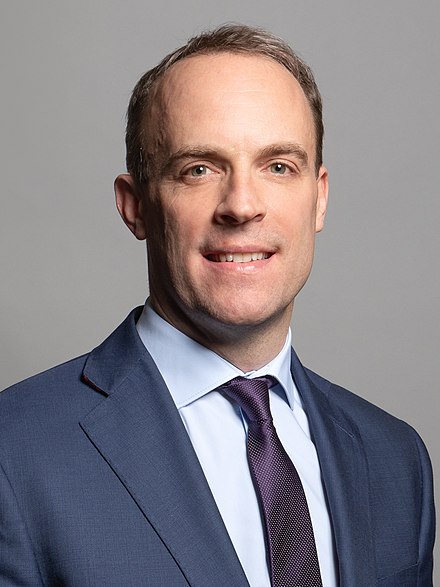


Foreign Secretary Dominic Raab gave the 15 June 2020 Downing Street daily press conference on the government’s response to the COVID-19 pandemic.
Dominic Raab said:Let me start with the daily update on the latest data on coronavirus: Today, we had 1,056 new cases. There are 395 people in critical care. And 38 people have very sadly died.
I think it’s also worth noting the week on week data, which compares Friday 5 June with Friday 12 June, just to give a sense of the trend and the progress we are making.
There were 109 fewer daily cases. There were 161 fewer patients in critical care in our hospitals. And 155 fewer deaths.
That’s important progress on the week before as we continue, step by step, and week by week, to bring the incidence of coronavirus down.
In addition, as of today, there have been 6,866,481 tests for coronavirus have now been carried out or posted out in the UK. This includes 93,163 tests carried out or posted out yesterday.
This is the progress, the evidence, the basis, on which we are able to progress along the roadmap, which the Prime Minister set out on 11 May.
We’re taking steady steps at each stage and our progress is based on strict conditions, and we’re very carefully monitoring the virus.
Thanks to the hard work of the British people, that we’ve seen the level of the virus brought down substantially.
At the same time, we’re watching the impact of every change that we make very closely so that we can monitor the trends and make sure that every step we take is as safe as possible.
On Saturday, we took measures to allow individual prayer at places of worship.
And in order to support the loneliest and most vulnerable in our society we’ve also allowed single-adult households to form ‘support bubbles’ with one other household. All those in any support bubble are able to act as if they live in the same household. Including spending time in each others’ homes without the requisite social distancing measures applying.
I know these modest steps will provide enormous relief to many people, who have been isolated from their loved ones for weeks on end now.
And today, we’re taking further steps to reopen British high streets, to get our economy motoring again, to protect jobs and livelihoods. We will also allow outdoor attractions to open, where people can stay in their cars, like safari parks and drive-in cinemas.
As we explained back on 11 May, these are modest and careful steps. But with each step we take, we can monitor their effect on the transmission of Covid -9 in the country, keep the virus under control as we open up step-by-step, and build public confidence in the transition that we’re making.
I say that because we can’t pretend that the virus has gone away or we’ve eliminated the virus. We know from the science, as well as international experience, that there is a risk of a second spike if we’re not very careful at this moment in time.
So we need to keep up social distancing. We need to keep building up and reinforcing our test and tracing regime. And we need continue our steady progress in repressing the virus as we try to get life back to something like normal.
BEIS and the Treasury are working closely with businesses large and small, right across the country, so that they are able to meet the Covid Secure guidelines before they reopen.
To give you a sense of what that will look like in practice, in local shops as we’ve already seen with essential retail, you’ll see one-way floor markings and signs, you’ll see hand sanitising stations, and there will be limits on the number of people in any one shop at any one time. So it’s very much a managed process.
Starting today, we’ve also made it mandatory to wear a face covering when using public transport. And we also advise people to use a face covering in any place where they can’t be sure they’ll be able to adhere to social distancing guidelines.
At the same time, we continue to incrementally bring more of our children back to school. We started with primary schools, welcoming more children back on 1 June. And today, secondary schools will start to provide some face-to-face time between teachers and students in years 10 and 12.
So that’s where we are as of today. And as I said, we’ll monitor the effect of these changes very carefully. That’s the way we can keep the downward pressure on coronavirus and build up public confidence, so we are in the best position that we possibly can be to take the third step, along our road map, which will happen no earlier that 4 July.
We’re sticking to our plan, we’re making good progress every week, and we’ll only take the necessary next steps when we can be confident it’s safe to do so.

Kindly follow us on twitter:@AfricanVoice2










